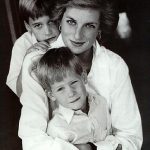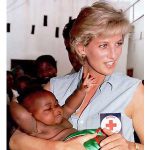Guidance Coronavirus (COVID-19): support for victims of domestic abuse
Measures announced over recent weeks to tackle coronavirus (COVID-19) have seen people’s day-to-day lives drastically altered. These changes are essential to beat coronavirus and protect our NHS.
The government acknowledges that the order to stay at home can cause anxiety for those who are experiencing or feel at risk of domestic abuse. There is never an excuse for domestic abuse, no matter what the circumstances are.
For anyone who feels they are at risk of abuse, it is important to remember that there is help and support available to you, including police response, online support, helplines, refuges and other services. You are not alone.
The household isolation instruction as a result of coronavirus does not apply if you need to leave your home to escape domestic abuse.
Friends, family, neighbours and community members can be a vital lifeline to those living with domestic abuse. If you are worried that someone you know may be a victim of domestic abuse, reassure them that the police and support services are still there to help and direct them to sources of support.
The government supports and funds several charities who can provide advice and guidance and we are in regular contact with the charity sector and the police to ensure that these support services remain open during this challenging time.
What is domestic abuse?
Domestic abuse is not always physical violence. It can also include, but is not limited to:
- coercive control and ‘gaslighting’
- economic abuse
- online abuse
- verbal abuse
- emotional abuse
- sexual abuse
What signs to look for
If you believe that you or someone else could be a victim of domestic abuse, there are signs that you can look out for including:
- being withdrawn
- having bruises
- controlling finances
- not being allowed to leave the house
- monitoring technology use such as social media platforms
Where to get help
If you believe you are being abused, or worried you may commit domestic abuse, please use the services on this page.
If you suspect that your neighbours or those in your community are victims of domestic abuse, we encourage you to report it to the police.
Call 999
If you are in immediate danger, call 999 and ask for the police – the police will continue to respond to emergency calls.
If you are in danger and unable to talk on the phone, dial 999, listen to the questions from the operator and respond by coughing or tapping the handset if you can. Then follow the instructions depending on whether you are calling from a mobile or a landline.
If you call from a mobile
If prompted, press 55 to Make Yourself Heard – this will transfer your call to the police.
Pressing 55 only works on mobiles and does not allow police to track your location.
If you call 999 from a landline
If only background noise can be heard and BT operators cannot decide whether an emergency service is needed, then you will be connected to a police call handler.
If you replace the handset, the landline may remain connected for 45 seconds in case you pick up again.
When 999 calls are made from landlines, information about your location should be automatically available to the call handlers to help provide a response.
National Domestic Abuse Helpline
Refuge runs the National Domestic Abuse Helpline, which you can call for free, and in confidence, 24 hours a day on 0808 2000 247. Its website provides guidance and support for potential victims, as well as those who are worried about friends and loved ones. It also has a form through which you can book a safe time for a call from the team.
Refuge’s website includes a range of resources on identifying the signs of domestic abuse, and a safety guide for women and children who are living with a perpetrator. It also features a tech abuse chat-bot with step-by-step instructional videos on how to secure devices such as phones and laptops. Look for the pink button in the bottom-right corner.
Women’s Aid
Women’s Aid has a range of direct services for survivors, including a live chat service and an online Survivors’ Forum. They have developed additional advice specifically designed for the current coronavirus outbreak. You can also find your local domestic abuse service on their website. They also provide information on the support helplines available in Wales, Scotland and Northern Ireland.
Men’s Advice Line
The Men’s Advice Line is a confidential helpline for male victims of domestic abuse and those supporting them.
Telephone: 0808 801 0327
Galop – for members of the LGBT+ community
Galop runs the National LGBT+ Domestic Abuse specialist helpline.
Telephone: 0800 999 5428
Email: help@galop.org.uk
Hestia
Hestia provides a free mobile app, Bright Sky, which provides support and information to anyone who may be in an abusive relationship or those concerned about someone they know.
Chayn
Chayn provides online help and resources in a number of languages about identifying manipulative situations and how friends can support those being abused.
Sexual assault referral centres
Sexual assault referral centres continue to provide non-judgmental advice and support services to victims and survivors of sexual assault or abuse.
Interviews, forensic examinations and sexual health and counselling services are offered in a comfortable environment where staff will ensure that victims and survivors will be managed safely to comply with coronavirus guidance. Please call your local sexual assault eferral centre to arrange care and support, which may be provided in person or remotely depending on your needs.
‘Honour’-based abuse
If you are suffering abuse from your family or community because they say that you have compromised their ‘honour’, or if they are trying to force you into marriage, you can get help. Karma Nirvana runs the national honour-based abuse helpline.
Telephone: 0800 5999 247
Email: support@karmanirvana.org.uk
BME specialist services
Imkaan
Imkaan is a women’s organisation addressing violence against black and minority women and girls.
Southall Black Sisters
Southall Black Sisters offer specialist support, advocacy and information to Asian and Afro-Caribbean women suffering abuse.
Disability specialist services
These services are run by deaf and/or disabled people.
Stay Safe East
Stay Safe East provides specialist and holistic advocacy and support services to disabled victims and survivors of abuse.
SignHealth
SignHealth provides domestic abuse service support for deaf people in British Sign Language (BSL).
WhatsApp or Facetime: 07970 350366
Telephone: 020 3947 2601
Email: da@signhealth.org.uk
Economic abuse
If you are concerned about how coronavirus may affect your finances and leave you vulnerable to economic abuse, please see the advice provided by HM Treasury on what support is on offer.
The charity Surviving Economic Abuse has also provided additional guidance and support.
Welfare benefits and housing advice
The Department for Work and Pensions has published up-to-date coronavirus-related welfare benefits information.
If you are concerned about your financial situation, you can contact Turn2us. They help people to access the money available to them through welfare benefits and grants. Their website has an income-related benefits checker enabling you to check that you are receiving all the benefits you are entitled to.
Shelter provide free confidential housing information, support and legal advice on all housing and homelessness issues. They also have an emergency helpline.
Support for children and young people
Witnessing and experiencing domestic abuse can have a serious impact on a child’s long-term health. It is a top priority that vulnerable children and young people remain safe during this uncertain period. If you are concerned that a child is at risk of harm, you should refer this information to children’s social care or to the police if you believe the child is in immediate danger.
NSPCC
The NSPCC has issued guidance for spotting and reporting the signs of abuse on their website.
The NSPCC Helpline is available for anyone with concerns about a child to contact for professional advice and support.
Telephone: 0808 800 5000
Email: help@nspcc.org.uk
Childline
Childline is available for children and young people to reach out for help and support by phone or using their online chat service. They also provide specific guidance for young people on how to get help and what to do if they are worried about a friend.
Telephone: 0800 1111
Barnardo’s
Barnardo’s provides support to families affected by domestic abuse.
Family Lives
Family Lives also provide support through online forums.
Information on child contact arrangements
Rights of Women provides guidance about child contact arrangements relating to coronavirus.
Support for employers
If you are an employer, it is important that you signal to all your workforce that if they are facing domestic abuse you want to help them to get help. Keep in regular contact with employees you know, or fear, may be facing abuse and if you lose contact with them, take swift action to visit them. If you believe there is an immediate risk of harm to someone, or it is an emergency, you should always call 999.
Encourage employees to look out for others who may be facing domestic abuse and signpost them to support. Your staff may also be worried about their own abusive behaviour at this time. There is no excuse for domestic abuse, no matter what stresses you are under and support is available.
The Employers’ Initiative on Domestic Abuse website has a range of resources to support employers. Business in the Community also have a toolkit with information for employers.
Support for professionals
SafeLives is providing guidance and support to professionals and those working in the domestic abuse sector, as well as additional advice for those at risk.
Support if you are worried about hurting someone
If you are worried about hurting the ones you love while staying at home, call the Respect Phoneline for support and help to manage your behaviour. This is an anonymous and confidential helpline for men and women who are harming their partners and families. It takes calls from partners or ex-partners, friends, and relatives who are concerned about perpetrators.
Telephone: 0808 802 4040
More information
For more advice and guidance on domestic abuse, please see Domestic abuse: how to get help.





